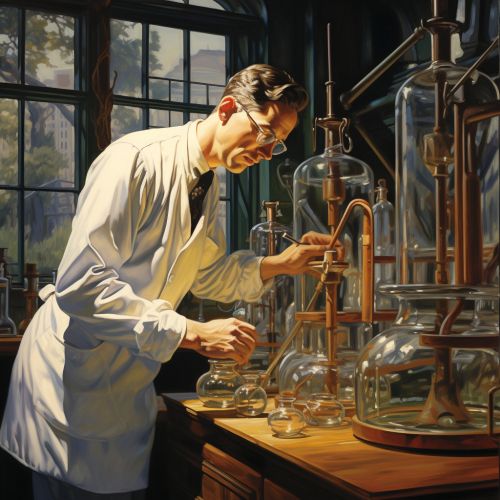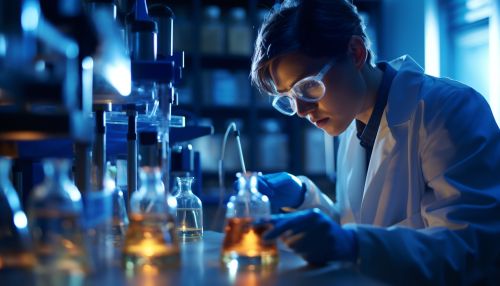Biochemical
Introduction
Biochemistry, a branch of both biology and chemistry, is the scientific study of the chemical processes and substances that occur within living organisms. It is a laboratory-based science that combines both biology and chemistry. By using chemical knowledge and techniques, biochemists can help to solve biological problems.


History
Biochemistry as a recognized scientific discipline emerged at the end of the 19th century. The term "biochemistry" itself is derived from a combination of biology and chemistry. In 1828, Friedrich Wohler published a paper on the synthesis of urea, proving that organic compounds can be created artificially. The dawn of biochemistry may have been the discovery of the first enzyme, diastase (now called amylase), in 1833 by Anselme Payen.
Fundamental Concepts
Biochemistry has several key concepts that are fundamental to all of the sciences. These include the atomic theory, the theory of molecular structure, the concept of pH, and the theory of bioenergetics.
Atomic Theory
The atomic theory in biochemistry is the concept that all matter is composed of atoms, which are the smallest unit of an element that retains the chemical properties of that element. Atoms consist of a nucleus, which contains protons and neutrons, and electrons that orbit the nucleus.
Molecular Structure
The molecular structure refers to the arrangement of atoms within a molecule. The structure of a molecule determines its function. For example, the structure of a protein molecule is directly related to its function in the body.
pH
The concept of pH is a measure of the acidity or alkalinity of a solution. It is a fundamental concept in biochemistry as many biochemical reactions occur at a certain pH level.
Bioenergetics
Bioenergetics is the study of the transformation of energy in living organisms. It involves the study of the production of ATP, the main energy source in cells, and the different ways that energy is used by cells.
Applications
Biochemistry has a wide range of applications in different fields, including medicine, nutrition, agriculture, and the environment.
Medicine
In medicine, biochemists investigate the causes and cures of diseases. This involves studying the biochemical mechanisms that lead to the changes observed in the diseased state. For example, biochemists may investigate how the body responds to a drug or how a drug interacts with the body to exert its effects.
Nutrition
In nutrition, biochemists study how the body uses food. This includes studying the biochemical pathways that break down food into its constituent nutrients and how these nutrients are used by the body.
Agriculture
In agriculture, biochemists may study how plants use light to grow (photosynthesis) or how plants and animals use nutrients. This knowledge can be used to improve crop yields and livestock production.
Environment
In environmental science, biochemists may study how pollutants affect the environment and living organisms. This includes studying the biochemical pathways that pollutants interfere with and how these pollutants can be removed from the environment.
Future Directions
Biochemistry is a rapidly evolving field with new discoveries being made regularly. Future directions in biochemistry may include the development of new drugs, the design of new types of crops, and the development of new methods for cleaning up the environment.
